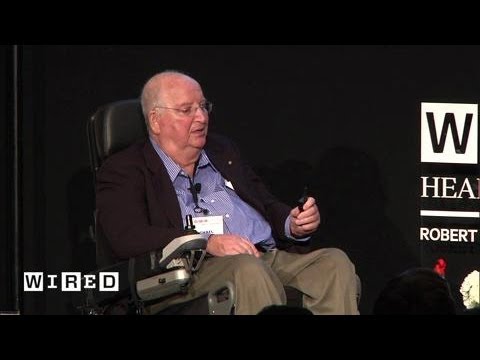Exploring the Universe: Neil deGrasse Tyson Answers Questions About Our World
Summary
Neil deGrasse Tyson, an astrophysicist, answers questions about the universe, including topics such as quantum physics, the Goldilocks zone, and the possibility of life on other planets. He also discusses how science promotes peace and prosperity in the world.
Table of Contents
- Introduction
- What is the average number of stars born each year in our galaxy?
- What are the quirks in quantum physics?
- Why is it important to use the methods and tools of science to decode that which is true about nature?
- What is the Goldilocks zone?
- Is it possible for moons that are tidally heated to support life?
- Why has quantum physics been so successful in describing the universe?
- How can science promote peace and prosperity in the world?
- Conclusion
Introduction
The universe is an endless fountain of knowledge, and we are barely scratching the surface of what we know. To help us navigate this complex world, astrophysicist Neil deGrasse Tyson answers questions about the universe submitted by members of the public. From the mysteries of quantum physics to the potential for life on other planets, Tyson shares his insights on the latest science and technology.
What is the average number of stars born each year in our galaxy?
According to Tyson, approximately 100 stars are born each year in our galaxy. It may seem like a low number, but when you consider the vast scale of the Milky Way, it’s an astonishing figure. Stars are born from clouds of gas and dust, and the process takes millions of years. Our sun, for example, is about 4.6 billion years old, and it will continue to burn for about another 5 billion years before it exhausts its fuel and dies.
What are the quirks in quantum physics?
Quantum physics is a field of study that explores the behavior of particles at the smallest scales. As Tyson explains, the quirks in quantum physics are simply placeholder words to represent particles that can’t be seen directly. For example, we can’t see electrons, but we can observe their behavior in experiments. The strange and unpredictable behavior of particles at the quantum level has long been a source of fascination and frustration for scientists.
Why is it important to use the methods and tools of science to decode that which is true about nature?
As Tyson emphasizes, science is our way of decoding the truths of nature. By using the methods of science, we can explore and discover the mysteries of the universe. We’ve used science to understand the laws of nature, to build technologies that save lives, and to explore our own origins. Without science, our understanding of the universe would be severely limited.
What is the Goldilocks zone?
The Goldilocks zone is the region around a star where the conditions are just right for life to exist. As Tyson explains, planets in this zone are not too hot, not too cold, but just right. In our own solar system, Earth is in the Goldilocks zone, which is why it’s able to support life. Scientists are searching for exoplanets in the Goldilocks zone of other stars to search for signs of life.
Is it possible for moons that are tidally heated to support life?
Moons that are tidally heated are moons that experience strong gravitational forces from their parent planet, causing them to heat up. As Tyson explains, these moons are potential candidates for supporting life because the heat could create a subsurface ocean of liquid water. If such an ocean exists, microbes and other forms of life could survive there.
Why has quantum physics been so successful in describing the universe?
Quantum physics has been remarkably successful in describing the universe because it’s a theory that applies across the universe. As Tyson explains, the laws of quantum physics apply not only to particles at the smallest scales but also to the largest structures in the universe. The success of quantum physics is a testament to its elegance and completeness.
How can science promote peace and prosperity in the world?
Science has a crucial role to play in promoting peace and prosperity in the world, according to Tyson. By using the tools of science, we can create technologies that address global challenges, such as climate change and disease. Science also promotes critical thinking and challenges us to question the status quo. When we solve problems with science, we create a better world for everyone.
Conclusion
The universe is full of mysteries waiting to be explored, and Tyson’s answers provide a glimpse into the depths of knowledge that await us. Whether it’s exploring the Goldilocks zone, understanding the quirks of quantum physics, or using science to promote peace and prosperity, Tyson’s insights remind us of the power and importance of scientific inquiry. It’s an exciting time to be alive, and with continued research and exploration, we can uncover even more of the wonders of our universe.







